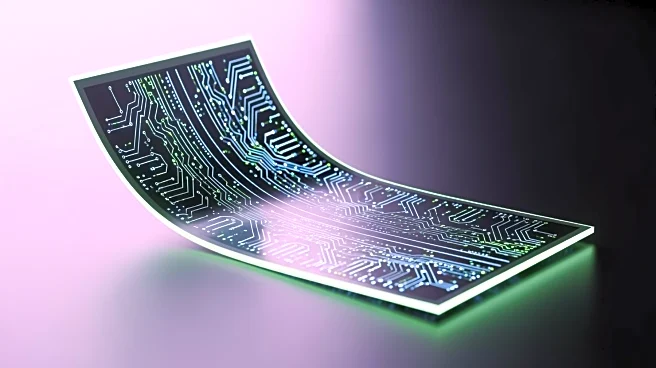What's Happening?
Scientists in Japan have developed enhanced versions of vitamin K that may aid in brain repair by generating new neurons. These redesigned molecules, created by combining vitamin K with retinoic acid, demonstrated a threefold increase in the ability to
turn stem cells into neurons compared to natural vitamin K. This development is significant as neurodegenerative disorders like Alzheimer's, Parkinson's, and Huntington's disease result from the gradual deterioration and death of neurons, leading to symptoms such as memory loss and cognitive decline. Current medications only ease symptoms without halting or reversing the disease, highlighting the need for new treatment strategies. The study, published in ACS Chemical Neuroscience, was led by Associate Professor Yoshihisa Hirota and Professor Yoshitomo Suhara from the Shibaura Institute of Technology.
Why It's Important?
The discovery of these vitamin K analogues could pave the way for new therapeutic agents that delay or reverse neurodegenerative diseases. By promoting the formation of neurons, these compounds may help replenish lost neurons and restore brain function, offering a potentially groundbreaking approach to treating conditions like Alzheimer's. This could significantly improve the quality of life for patients and reduce the societal burden of healthcare expenditures and long-term caregiving. The research highlights the potential of vitamin K-derived drugs to slow the progression of Alzheimer's disease or improve its symptoms.
What's Next?
The study's findings suggest further research and development of vitamin K-based therapies for neurodegeneration. The next steps may involve clinical trials to test the efficacy and safety of these compounds in humans. If successful, these therapies could become a vital part of treatment regimens for neurodegenerative diseases, offering hope to millions of patients worldwide.














